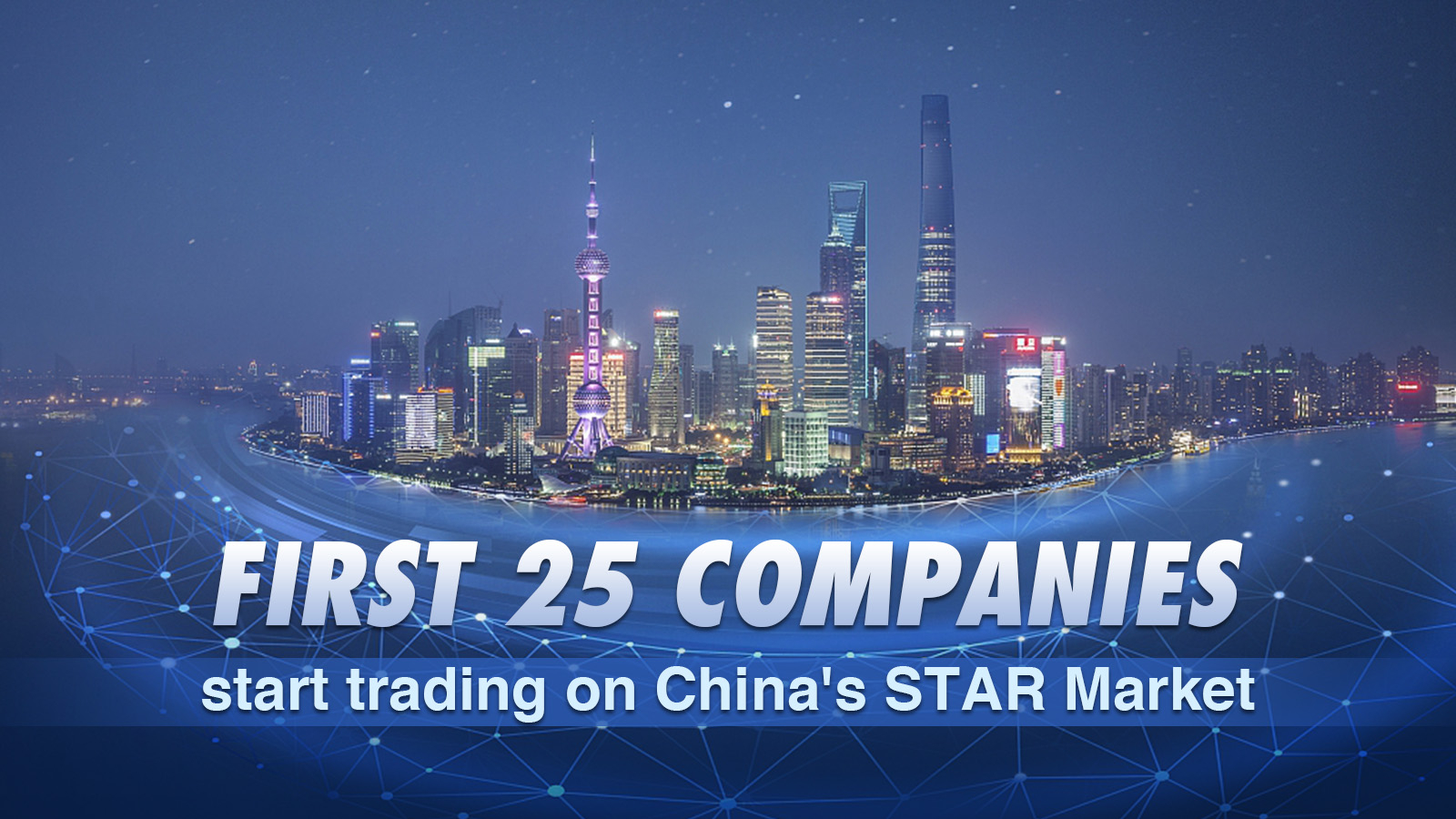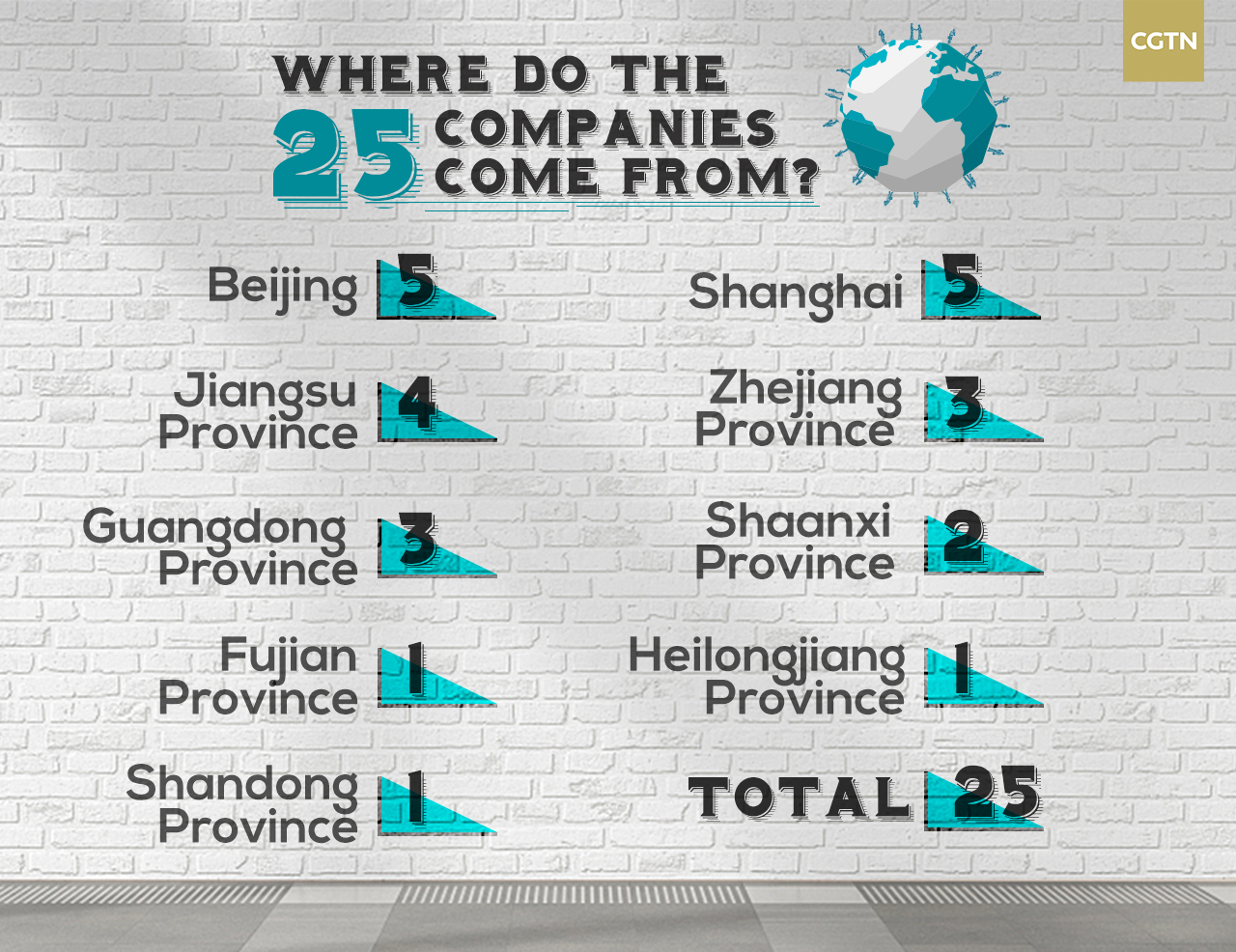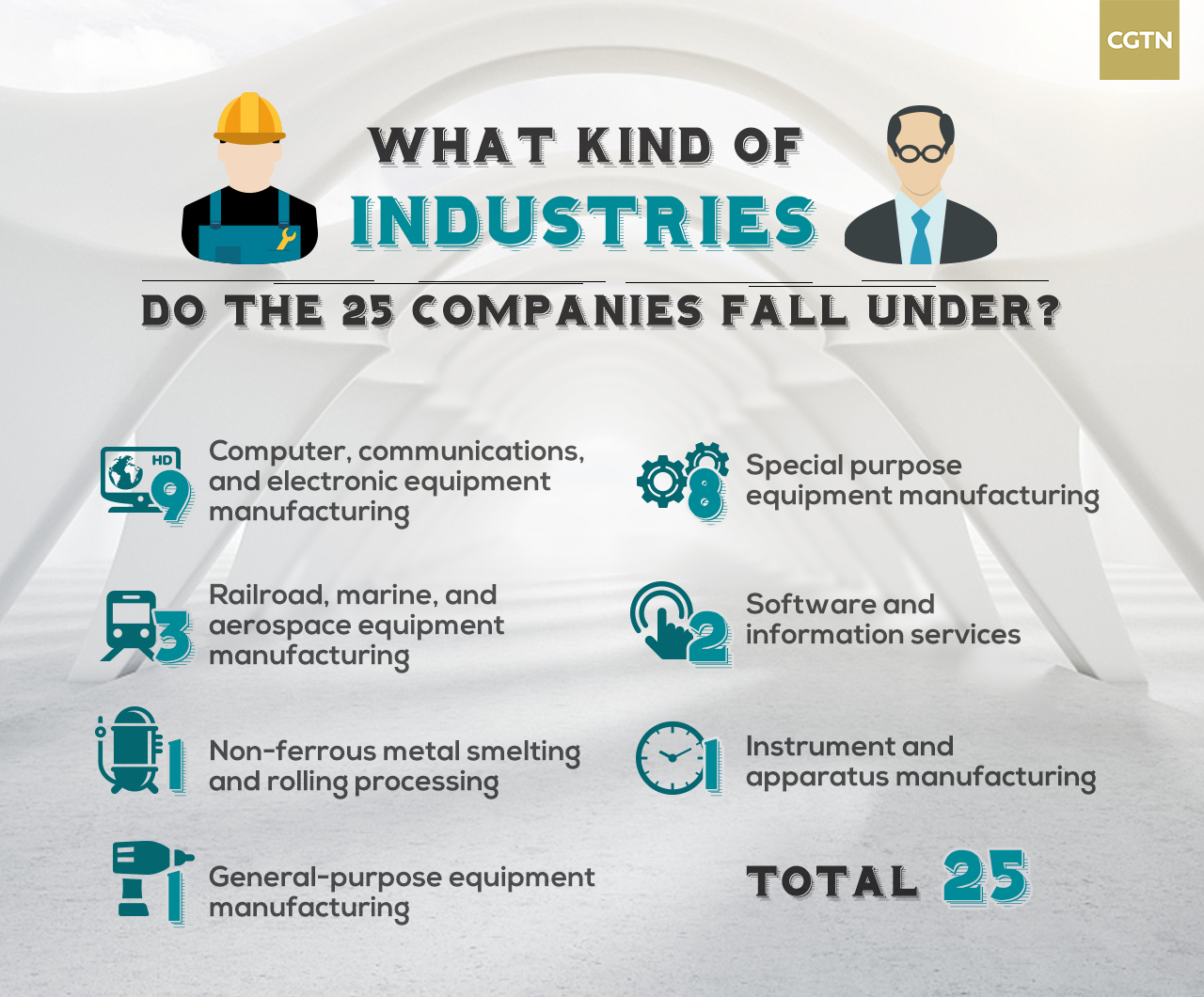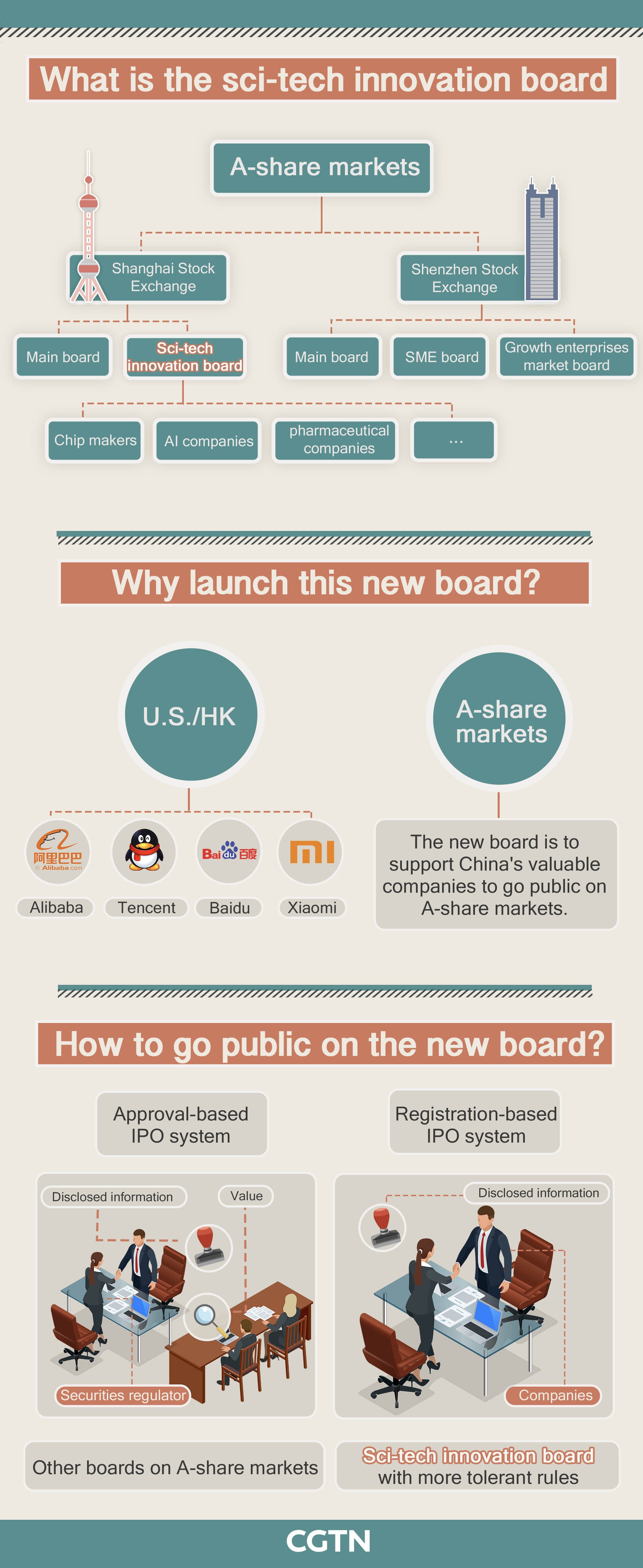

The first batch of 25 Chinese companies started trading on Shanghai's Nasdaq-style sci-tech innovation board, the STAR Market, on Monday, nine months after the establishment plan of the board was officially announced at the opening of the first China International Import Expo (CIIE).
In the early morning trade, most of the first batch of 25 companies, ranging from chip makers to biotech firms, surged quickly.
After the lunch interval, all of these companies at least doubled their IPO prices on the market. The largest increase of stocks price was recorded by Anji (SH: 688019), a semiconductor firm, soaring over 450 percent and hitting its growth of about 520 percent in the morning.
The smallest price growth of about 100 percent was seen with Xinguang (SH: 688011), a company focusing on electronic technology.
Rising stars in the STAR Market
The STAR Market is positioned to support six high-tech industries, including next-generation IT, advanced equipment, new materials, new energy, energy conservation and environmental protection, and biomedicine.
Among the first 25 companies listed on the new board, 13 companies are from the next-generation IT sector, five companies from advanced equipment, five from new materials, and two from the biomedicine industry.


Concerning net profit performance, 23 out of the 25 companies have achieved year-on-year increases in the first half of 2019. The average issue price of the 25 companies stands at 29.2 yuan per share, with the average price-to-earnings ratio settling at 49.2.
The total amount of funds the 25 listed companies are aiming to raise is 31.1 billion yuan, with oversubscribed funds at 5.9 billion yuan.
The STAR Market has accepted listing applications from 149 companies, which will gradually undergo market tests following the debut on the new board of the first batch of 25 companies.
What is the STAR Market?
The establishment of the STAR Market was proposed by Chinese President Xi Jinping at the opening of the first CIIE in Shanghai on Nov. 5, 2018. It was officially launched at the 11th Lujiazui Forum in Shanghai last month.
The sci-tech innovation board has been set up by the Shanghai Stock Exchange (SSE), exclusively for investing in tech and innovative companies, such as chip makers, AI companies and pharmaceutical companies.

Some of China's most valuable companies, like Alibaba, Tencent, Baidu and Xiaomi, have chosen to list on exchanges in Hong Kong or the U.S., and they are absent from the mainland's A-share markets. The new board, which will operate with more tolerant rules, will aim to support such companies and encourage them to list on the mainland.
Dong Dengxin, director of financial securities institutes in Wuhan University of Science and Technology, noted that the new board will encourage high-tech start-ups to seek initial public offerings (IPO), which could become China's Nasdaq.
China Securities Regulatory Commission (CSRC) chairman Yi Huiman said the STAR Market will test China's capital market reforms and require much stricter disclosure, adding that the CSRC would improve relevant legal framework and law-based regulation, push forward the amendment to the Securities Law, and severely punish those who disrupt the equity market.
The new tech board experiments with a registration-based system for listed companies, a reform on the current approval-based IPO system, where the securities regulator not only checks disclosed information but also evaluates companies' values before allowing them to go public.
In a registration-based system, the securities regulator just checks companies' disclosed information, with the companies' value determined by the market. The long-awaited reform is seen as a key step for the domestic capital market to become more market-oriented.

(CGTN's Chen Yurong also contributed to the story.)
Read more:
Experts address concerns about China's upcoming STAR Market debut
CSRC new chairman on sci-tech board and IPO reform
China's capital market reform spurs listing on Shanghai's sci-tech board

Copyright © 2018 CGTN. Beijing ICP prepared NO.16065310-3
Copyright © 2018 CGTN. Beijing ICP prepared NO.16065310-3